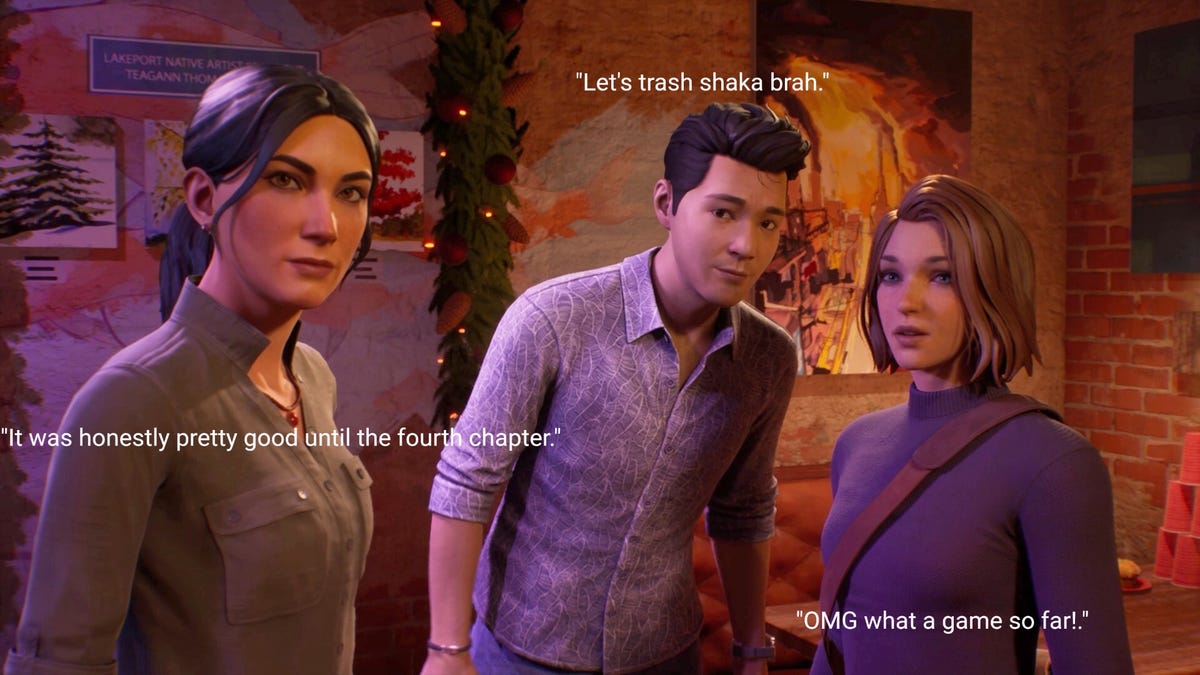Thomas Happs 2015 Axiom Verge is a triumph of unique vision and nostalgia. The scope of this project was astonishing as it was carried out almost entirely by a single person. This release also earned its reputation as the Metroid-like game ever released that didn’t really bear the name. Years later, the sequel is more confident in its steps away from that core inspiration, but it remains no less impressive in size and breadth. Players can expect a long and thought-out adventure that will lead through gear-driven paths and an elaborate science fiction narrative. But Axiom Verge 2 is also a game that crosses the line between patience and frustration. The tempo lacks some of the big moments that could add structure and tension, and the many interconnected corridors merge into a long and confusing blur.
The protagonist Indra Chaudhari is an eccentric billionaire who hopes to track down her missing and estranged daughter. Their search leads them to an abandoned research station in Antarctica and a freight elevator that opens into a completely different world ruled by bizarre physics, technology and history. Only the most ardent followers of the Axiom Verge lore will discover the connective tissue at the first game. Still, alternate universes and the nature of consciousness are concepts that are very much at play. The story flirts with identity issues and what makes us human, but even with some elaborate ideas, the story disappointed me a little. A significant blow at the beginning of the plot offers a surprising shift in narrative and gameplay direction, but much of what follows is missing the insightful sequel I hoped to find.
If there’s a reason to play, it’s the immaculate level design and clever upgrades that open up new avenues for exploration. The character upgrades are fascinating, from navigating a distant drone through tiny openings to exploding into a swarm of nanites to knock down a boulder. The most exciting aspect of exploring is the overlaying of an entire second world on top of the first, and both have slightly different geometries and upgrades to track down. Puzzles often use this two-world dynamic and require you to think in multiple dimensions. The experience is trippy and often satisfying in its challenge.
New ranged and melee weapons can be upgraded for an extra kick, and a skill enhancement system allows for further arsenal upgrade, health expansion, and more. There’s even an upgrade hacking tool that offers the ability to open certain locked doors or turn aggressive hostile technologies into allies. Even if the upgrades and weapons are fun, the battle never picks up speed. Individual enemies often feel more of a nuisance than a challenge. Several large optional monsters are scattered across the map, but overcoming them seldom requires great skill. And in an unusual twist, given the genre, the game only has a few encounters that could be labeled bosses, and even these lack depth.
Gradually unlocking the Axiom Verge 2 card leads to several pleasant moments of discovery. Many of the hidden paths and locked improvements made me smile. Unfortunately, I found these moments of progress and discovery to be uneven. Just as I was starting to get into the exploration flow and the map opened, I hit a wall. The enormous size of the card, which I would normally celebrate, suddenly became an obstacle to my enjoyment as I slowly walked back through dozens of rooms looking for a newly opened room. The map is difficult to read and contains few clear indications of blocked paths or the location of inaccessible objects.
Coupled with the odd lack of meaningful boss encounters or story beats, the sprawling map made me feel like aimlessness and constant confusion. Undoubtedly, part of that atmosphere is inherent in any game inspired by Metroid. But here I found the feeling overwhelming that sometimes pulled me out of the otherwise pleasant rhythm of discovery and exploration.
Even so, even when Axiom Verge 2 left me frustrated, I never lost my sense of its smart design and overwhelming premise. With these first two games, Happ laid the foundation for a particularly weird and compelling fiction, and we’ve only just scratched the surface of its secrets. While I hope I won’t have to wait another six years to play Axiom Verge 3, I’m intrigued enough to have a controller ready for its inevitable return.






.png?width=1200&height=630&fit=crop&enable=upscale&auto=webp)

